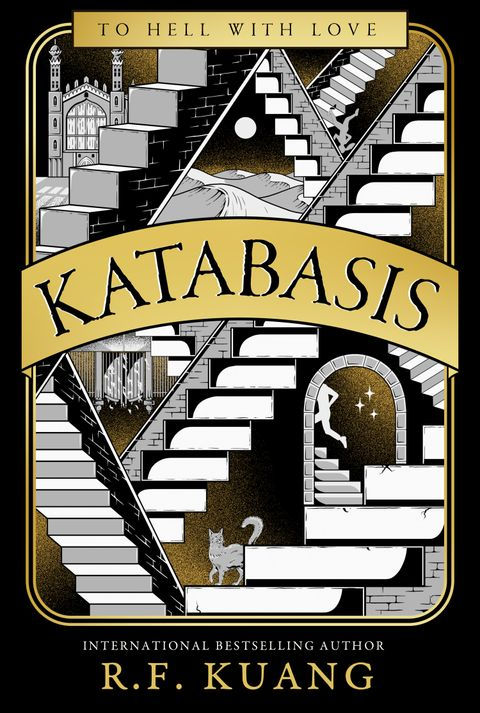Katabasis by R.F. Kaung
- NZ Booklovers

- Aug 11, 2025
- 2 min read

K. F. Kuang’s Katabasis transports readers into a dark, sprawling underworld as two graduate students, Alice Law and Peter Murdoch, are forced to overcome their conflicts and plunge into Hell to save their late mentor, Professor Jacob Grimes. A remarkable blend of fantasy, philosophy, and metaphor, this novel merges emotional tension with intellectual ambition, though it occasionally buckles under the weight of its complexity.
Alice Law’s single-mindedness defines her: driven, brilliant, and relentlessly focused on becoming a Magick scholar of the highest calibre. When Grimes dies in a magical accident (possibly linked to Law’s actions) Alice latches onto the possibility of retrieving his recommendation letter from the afterlife, a symbol of her life’s goal. Peter Murdoch, her reluctant rival, is drawn into the pact, and together the pair brave the eight courts of Hell; a journey that tests their resolve and the bonds they never expected to form.
Kuang richly imagines a version of Hell infused with academic and ethical weight. Each court, each trial, challenges not just the characters’ abilities but their philosophical convictions: What defines justice? Does knowledge absolve guilt? The narrative stages become reflective of the characters’ inner conflicts as much as obstacles to their rescue mission. The book’s ambition (and the author’s!) is undeniable.
Yet this ambition is both its greatest strength and its stumbling block. Kuang’s prose is intentionally dense, richly layered with references to logic, mathematics, philosophy, and literature. For readers familiar with these disciplines, the text can be exhilarating; but for others, the barrage of intellectual exposition may steady the storytelling beam into something more like showing off than helpful. At times, the prose feels less like narrative propulsion and more like academic lecture, distancing emotional engagement.
The emotional core rests heavily on the evolving dynamic between Alice and Peter. Their relationship arcs from cold rivalry to nuanced intimacy. However, Peter’s backstory often eclipses Alice’s perspective, especially in the novel’s first half, which can leave Alice’s character underexplored despite the story centring on her. Only in the latter sections does she emerge with the agency and emotional resonance essential to her role, though one wishes this development had been more balanced throughout.
Nevertheless, Katabasis delivers uneven pacing with electrifying moments. Twists surface unexpectedly, especially in the final descent, offering real narrative jolts. Kuang excels in weaving high-concept world-building into the emotional stakes: moments of fierce compassion, guilt, sacrifice, and redemption punctuate the metaphysical descent.
There are echoes of classic descents into Hell but reframed through academic rites of passage. Katabasis asks pointed questions about the cost of ambition and the nature of power. It interrogates what lessons we take from mentors, what we are willing to sacrifice for legacy, and whether love forged in darkness can survive the return into daylight.
In conclusion, Katabasis is a bold, provocative work that will enthral readers drawn to philosophical fantasy, academic intrigue, and morally complex character studies. Its narrative momentum may sometimes falter under intellectual weight, but for those willing to engage deeply, it offers rich, haunting rewards and a glimpse of brilliance beneath its oppressive depths.
Reviewer: Chris Reed
HarperCollins



